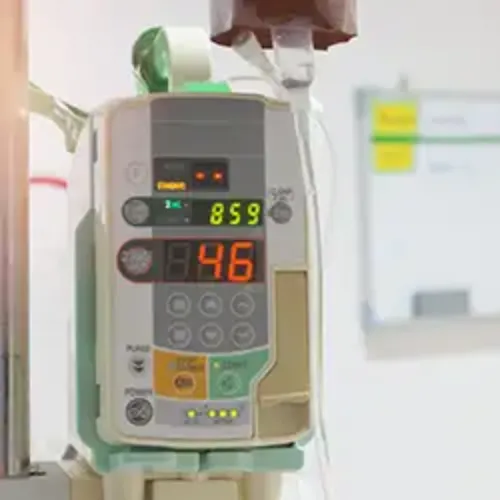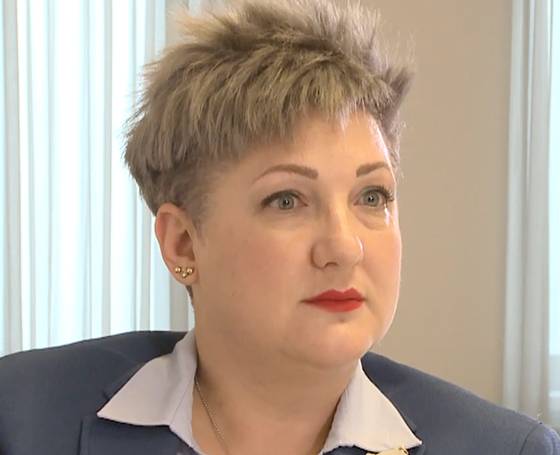Symptom Management and Palliative Medicine
"We offer a comprehensive, individualized and continuous care to achieve the maximum possible welfare for our patients in all aspects that may be affected by the disease".
DR. CARLOS CENTENO DIRECTOR. SYMPTOM MANAGEMENT AND PALLIATIVE MEDICINE SERVICE
The Symptom Management and Palliative Medicine Service has as its objective the attention and care of patients with advanced and irreversible illness, from a vision based on the dignity of the person and the professional care of the patient and his or her family.
Palliative care applied early on to these patients, associated with the medical treatment of their illness, manages to prolong the survival of the patient, anticipate possible complications and improve their quality of life.
We provide personalized attention to the patient and his or her family through continuous follow-up by our multidisciplinary team.
Through an integral physical, emotional and spiritual care we administer to the patient an excellent care that helps him/her to face everything that entails a complex or terminal disease.
We work very closely with the Oncology Departments of the Clinic and also with other departments that treat complex patients such as Neurology, Nephrology, Intensive Care Unit, etc.
The European Society of Medical Oncology (ESMO) has recognized the Clinic as a center of excellence for the integration it carries out of palliative care and oncological treatment.

Comprehensive care for our patients
IN NAVARRE AND MADRID
Palliative care consists of total, active and continuous care of patients and their families by a multi-professional team.
The fundamental goal is the quality of life of the patient and his or her family, without trying to prolong survival.
The main objectives are:
- To provide relief from pain and other symptoms.
- To defend life, but contemplating death as a natural process. Not to hasten or postpone death.
- To incorporate the psychological and spiritual aspects in the care of the patient.
- Support to help patients maintain, until death within their limitations, the highest level of activity.
- To help the family in the process of the illness and, later, in the mourning.
- Working as a team to meet the needs of the patient and family.
- To try to improve the quality of life and to influence in a positive way in the course of the illness.
- We perform a telephone follow-up once the patient has returned home by our nurses and availability of all team members for telephone consultations.
In these cases the treatment is oriented and a first response is given that resolves or coordinates the action in the face of any incidence or complication that the patient may suffer.
Existential psychological, spiritual or religious support can be convenient for many patients.
This type of assistance is able to reach deep aspects of the person that help them from within.
Reactions of anxiety, depression, fear of rejection and illness, insecurity, alterations of body image and the consequent deterioration of self-esteem are a major barrier to personal autonomy for many patients.
In cancer patients, psychological interventions help to improve quality of life, mood, coping, sense of control and physical and functional adaptation.
Psychotherapy and all treatments with a psychological basis are an essentially human help and, therefore, accessible to any person with conditions to listen, understand and accompany.
Psychological support for caregivers
In addition to psychological support for patients, it is recommended that basic emotional support be offered to caregivers:
- To offer caregivers the possibility of expressing their support and information needs, independently of those of the patient.
- Incorporate caregivers into treatment and care interviews whenever possible, always in agreement with the patient.
- Provide caregivers and family members with access to sources of information, support and advice
A complex or terminal illness does not only affect the patient but the impact on the family can also be important.
Therefore, within the care that our team of professionals proposes, the knowledge and attention to the family is an important part of the care plan.
- We dedicate time and space to get to know the family and the family environment.
- We try to offer emotional support.
- We provide understandable, coherent, updated and preventive information about your family member's illness and possible situations that may occur.
- We seek the welfare of the family, facilitate rest, distractions, etc.
- We help to manage the crises of anguish or anxiety that may occur. Always from the positive reinforcement of the situation.
- We respect at all times the support or decisions that the family wants to decide about the care of their relative.
Do you need to request a consultation with one of our specialists?
WE TAKE CARE OF THE PATIENT AND HIS FAMILY
Comprehensive care
We provide personalized attention to the patient and family through continuous monitoring by our multidisciplinary team.

Multidisciplinary teams
The palliative team supports all the departments that require its support, including the symptomatic support of the patients in the Clinical Trials Unit.

Specialized Nursing
Our nurses are specially trained to provide the best palliative care, support and follow-up for the patient and family.

Cutting edge medicine
In the Service we work to offer vanguard medicine, an advanced medicine to accompany the last stretch of life of the patients.

Why at the Clinic?
- Cutting edge diagnostic technology.
- Quick diagnosis to start the most appropriate treatment early.
- Teamwork with the rest of the professionals of the Clinic.
Our team of professionals
A positive view of the care of patients with advanced diseases
Teaching and research
We have one of the best palliative care programs in Europe.
We are committed to the benefits of having a holistic vision of the patient and his or her family; palliative care opens up a new field of knowledge in which to think and reflect on personal development and deepen the humanistic aspects of professional practice in the care and accompaniment of patients and their families at the end of life.
We help our patients to overcome their stories
Their testimonies encourage us to continue improving our services













